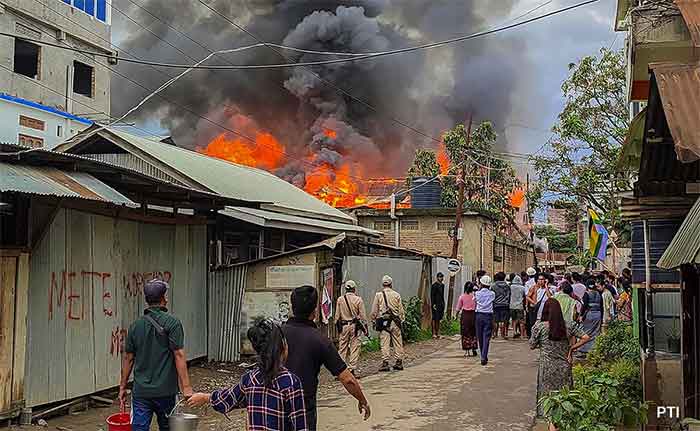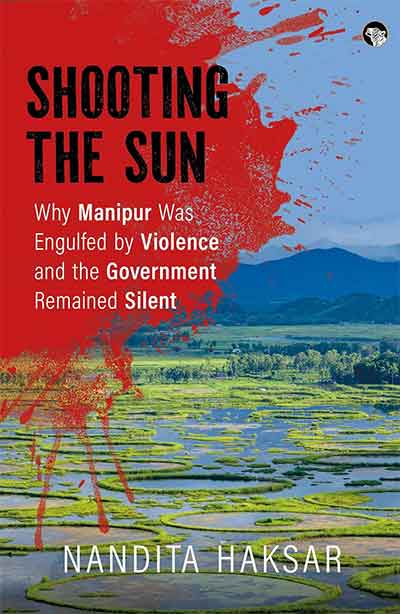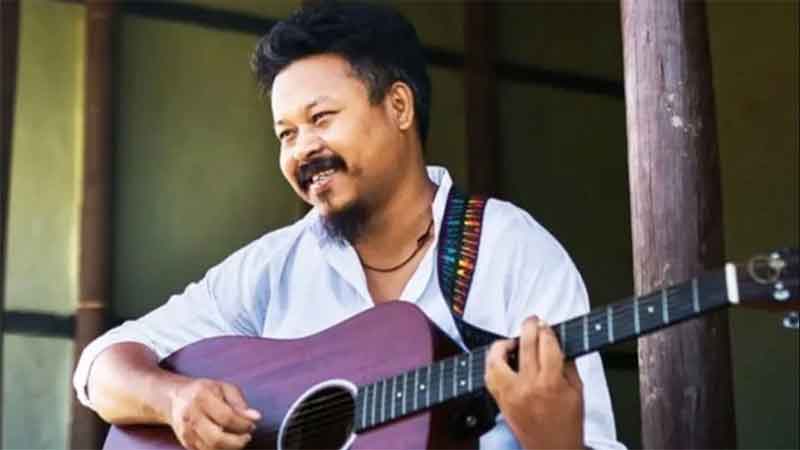
Manipur, with its capital at Imphal, is bordered by Nagaland, Assam, and Mizoram. To its east is part of India’s sensitive international border with Myanmar (formerly Burma), increasingly under covert Chinese influence.
A turning point
A part of the Second World War Burma Campaign, the gruelling and historic Battles of Imphal and Kohima were fought during March to July 1944, at great cost to both Indian and Japanese troops. The outcome was the defeat and withdrawal of Japanese forces, and the beginning of the “Defeat into Victory” chapter of the Indian Army.
Fast forward
79 years later, a different battle is in progress in Manipur. There was tension between the (53% majority mostly Hindu) Meitei people who live in the Imphal valley, and people of the 30-plus tribes (40% in numbers, with 25% Kuki tribe), who live in the surrounding hilly regions. Meitei plains people are generally better-off economically than the tribal hill people.
The tension grew into a dispute due to the tribal people’s resentment that the Meitei population was allegedly cornering a disproportionate share of the meagre development benefits flowing from the Centre to Manipur. This was coupled with a long-standing Meitei demand for ST status, so that they too could avail privileges and benefits which ST communities receive. The Meiteis had submitted several requests for ST status to the Centre from 2013 onwards. The tribal communities had always opposed the Meitei demand. It is a typical case of conflict of interests concerning claiming a larger proportion of a small piece of cake.
On 27 March 2023, on a petition by Meiteis, the Manipur High Court directed the state government to recommend inclusion of the Meitei community in the ST list, and take a decision “preferably within four weeks”. This order neglected an earlier Supreme Court judgment that only the Parliament – with concurrence of the President – could include any community in the ST List. A Meitei group filed a review petition in the Manipur High Court, calling for modification of the 27 March order. However, on 17 May, the Supreme Court stayed the Manipur High Court order, which directed the state government to consider recommending the inclusion of the Meitei community in the Scheduled Tribe (ST) list, to the Centre. The Manipur High Court has listed the next review petition hearing on 5 July.
In between the legal petitions and reviews, violence broke out between Meiteis and the tribal peoples, starting 3 May in Churachandpur. The trigger for the violence was the Meitei-dominated Manipur government holding that the hilly region people were cultivating poppy, and ordering eviction and other action against supposedly illegal migrants from Myanmar in the hilly regions, coming on top of simmering Kuki anger over the 27 March judgment.
The violence continues even 51-days on. Mobs have looted large quantities of weapons and ammunition by raiding Police Stations. Armed Kuki and Meitei mobs roam the state, killing, burning and looting. Over 100 people have been killed, huge numbers injured, and around 50,000 people have been rendered homeless. The supply routes are blockaded. The violent conflict – some are using the term ‘civil war’ – has economic, ethnic and communal facets. It is clearly a political issue, which must be solved by political means.
On 27 May Army Chief General Manoj Pande visited Manipur to review the deteriorating security situation. Home Minister Amit Shah’s 3-day visit to Manipur starting 29 May did not stem the violence. On 31 May CDS General Anil Chouhan opined that the violence in Manipur is primarily a clash between two ethnicities and is not connected with insurgency. That is, the problem is political in character, and the state government together with the central government should restore peace by deploying the Central Armed Police Forces (CAPFs). Notwithstanding, the Army and Assam Rifles have committed around 13,500 troops in the internal security role.
However, the state and central governments are unable to restore peace. Government has lost both administrative control and public confidence. Political fragmentation has begun, with BJP MLAs calling for Chief Minister Biren Singh’s replacement, and Kuki MLAs calling for a separate Kuki administration.
Although PM Modi has spoken on other matters, his inexplicable and baffling silence on Manipur, has led some to wonder whether Manipur remains a state of the Indian union. PM Modi did not give audience to two Manipur BJP delegations and one Congress delegation to Delhi, pleading for measures to restore peace.
HM Amit Shah has unprecedentedly called for an All-Party meeting in Delhi on 22 June, to address the Manipur crisis, even while PM Modi is on a state visit to USA, and the violence and his silence continue.
Every day that PM Modi delays saying something, anything, on the violence in Manipur, makes it more difficult for him to speak. After remaining silent for weeks, it is exceedingly difficult to guess what he may say whenever he decides to break his silence. If he calls for peace – which presumably he would do – people will wonder (and the bolder ones will ask) why he could not do this much earlier.
Chief Minister Biren Singh appears to be floundering out of his depth, possibly incompetent to handle the situation. More frightening is the thought whether our PM’s silence indicates a similar situation. The outcome of HM Shah’s All-Party Meeting, and how the decisions taken will play out in coming days, will be closely watched nationally and internationally, but especially by the suffering people of Manipur trapped in Meitei and Kuki violence, and praying for peace.
The fighting is centred on Manipur’s capital Imphal. As in March to July 1944, when fighting in Imphal was a turning point, will the present situation be a turning point for domestic politics, even as communal violence is reported in other BJP-ruled states like Uttarakhand (Purola) and even Gujarat (Junagadh)? Time will tell whether and how Imphal may yet again matter.
Maj Gen S.G.Vombatkere, VSM, focuses on development and strategic issues, using cross-discipline study and systems thinking. Contact: [email protected]














































